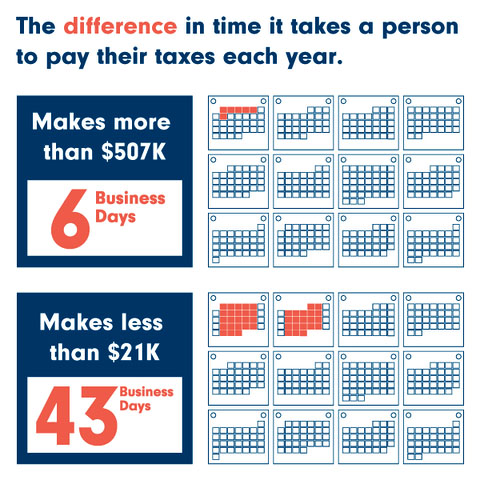NEWS ROUNDUP
Birthday privacy | NAFTA talks | 5-year-old farmworkers
Monday, January 29, 2018
LOCAL
► In today’s Tri-City Herald — Ill Hanford workers face a maze of benefit programs. This new center is coming to the rescue — Representatives will help workers made ill by working at Hanford or their survivors understand what help is available from different programs, some of them complex and with services that overlap benefits.
ALSO at The Stand — A stronger safety net for Hanford workers (WSLC Legislative Update)
THIS WASHINGTON
► In today’s News Tribune — Is revealing a state worker’s birthdate invasive or necessary to a functioning democracy? — A group of Democratic lawmakers is pushing to cut off a long-brewing court battle over public records between state labor unions and their foes by banning the disclosure of the birthdates of state employees. While that lawsuit relates to an effort by the conservative Freedom Foundation to notify certain state workers about how to legally avoid paying union dues, new legislation on the topic has set off a wider battle over balancing privacy with government transparency.
► In the News Tribune — People of both parties agree: Help Dreamers (by Sen. Mark Miloscia) — State and federal lawmakers must help address the uncertainty that Washington state’s 18,000 Dreamers face every day by passing legislation that would give them permanent work authorization.
► In today’s Seattle Times — Higher property-tax bills to hit King County next month — The state’s new schools-funding plan will be responsible for about two-thirds of the county’s 17 percent average increase, according to King County Assessor John Wilson.
 EDITOR’S NOTE — Don’t forget. Members of both parties voted for these tax increases, but it was Senate Republican leaders who insisted last year on raising property taxes higher in “property-rich” areas of the state — read: Democratic-leaning populous areas in Western Washington — to fund McCleary. Democrats proposed raising the revenue via capital gains and other taxes targeted toward the wealthiest, and not middle-class and low-income families. But Republican negotiators rejected that plan. Washington already has the most upside-down, regressive tax code of any state in the country, where the rich pay the least and the poor and middle class make up the difference. The Democratic proposal would have been much more fair to Washington’s working families.
EDITOR’S NOTE — Don’t forget. Members of both parties voted for these tax increases, but it was Senate Republican leaders who insisted last year on raising property taxes higher in “property-rich” areas of the state — read: Democratic-leaning populous areas in Western Washington — to fund McCleary. Democrats proposed raising the revenue via capital gains and other taxes targeted toward the wealthiest, and not middle-class and low-income families. But Republican negotiators rejected that plan. Washington already has the most upside-down, regressive tax code of any state in the country, where the rich pay the least and the poor and middle class make up the difference. The Democratic proposal would have been much more fair to Washington’s working families.
► In today’s Spokesman-Review — State looking at ways to increase voters and turnout — From making it so easy that registration is almost automatic, to “preregistering” 16- and 17-year-olds, to moving around the date of the state and presidential primaries, legislators and Secretary of State Kim Wyman are kicking around lots of ideas that might boost turnout. One of the driving factors is likely last November’s abysmal turnout – 37.1 percent statewide – the lowest for a general election in at least 35 years.
 ► In the (Everett) Herald — 30-year legislator Dick King dies at 83 — Dick King, a former Everett Community College instructor who championed worker rights, environmental protection and public safety in a 30-year legislative career, has died. King, known for his honesty and wry sense of humor, crafted the state’s collective bargaining law and created a path to tenure for community college professors. He passed away Jan. 15 in Port Angeles. He was 83.
► In the (Everett) Herald — 30-year legislator Dick King dies at 83 — Dick King, a former Everett Community College instructor who championed worker rights, environmental protection and public safety in a 30-year legislative career, has died. King, known for his honesty and wry sense of humor, crafted the state’s collective bargaining law and created a path to tenure for community college professors. He passed away Jan. 15 in Port Angeles. He was 83.
INTERNATIONAL TRADE
► In the Washington Post — NAFTA talks that were supposed to end last year might continue into 2019 — Talks aimed at reaching a new trade agreement involving the United States, Canada and Mexico are expected to continue for months beyond a March 31 deadline and could even extend into 2019.
 ► In the USA Today — Trump team isn’t negotiating a good NAFTA deal for workers (by Sen. Elizabeth Warren) — The failure to deliver a worker-friendly NAFTA makeover reflects the same kind of U-turn that Candidate Trump executed once he became President Trump. Candidate Trump promised to Buy American and Hire American; President Trump issued a vague executive order before giving billions in new government contracts to firms that are notorious for serial American job outsourcing. Candidate Trump committed to cracking down on currency manipulation; President Trump has done a complete reversal, capitulating to countries that harm U.S. workers. And candidate Trump stood before workers at Carrier, assuring them that their jobs would not leave this country. Months later, when Carrier laid off those same employees, President Trump was nowhere to be found.
► In the USA Today — Trump team isn’t negotiating a good NAFTA deal for workers (by Sen. Elizabeth Warren) — The failure to deliver a worker-friendly NAFTA makeover reflects the same kind of U-turn that Candidate Trump executed once he became President Trump. Candidate Trump promised to Buy American and Hire American; President Trump issued a vague executive order before giving billions in new government contracts to firms that are notorious for serial American job outsourcing. Candidate Trump committed to cracking down on currency manipulation; President Trump has done a complete reversal, capitulating to countries that harm U.S. workers. And candidate Trump stood before workers at Carrier, assuring them that their jobs would not leave this country. Months later, when Carrier laid off those same employees, President Trump was nowhere to be found.
► From Reuters — Hung out to dry twice, Tennessee city stumped by Trump’s washer tariffs — Trump’s move threatens to stunt the launch of a new LG Electronics washing machine factory under construction in Clarksville, just four years after the U.S.-China trade fight over solar panels scuttled a nearby $1.2 billion Hemlock Semiconductor polysilicon plant.
THAT WASHINGTON
 ► In today’s Washington Post — Lawmakers urge Trump to scale back immigration demands — Lawmakers in both parties said Sunday that the immigration debate should focus narrowly on efforts to legalize young immigrants known as “dreamers” and beef up border security, suggesting that President Trump’s demands to slash legal immigration levels are likely to sink a deal.
► In today’s Washington Post — Lawmakers urge Trump to scale back immigration demands — Lawmakers in both parties said Sunday that the immigration debate should focus narrowly on efforts to legalize young immigrants known as “dreamers” and beef up border security, suggesting that President Trump’s demands to slash legal immigration levels are likely to sink a deal.
EDITOR’S NOTE — Negotiators are also being urged to include a remedy for Trump’s non-nonsensical demands to end Temporary Protected Status for Salvadorans.
► In today’s Washington Post — New work rules spur red state holdouts to launch bids to expand Medicaid — If Republicans’ efforts are successful, hundreds of thousands of Americans could become newly eligible for health coverage, while others could be dropped or have their benefits reduced. The effect would be a broadening of the program’s reach but with a decidedly conservative bent.
 ► In today’s Washington Post — Koch network donors growing nervous about losing their majorities in the midterms — Last year, Koch network officials announced that they would spend from $300 million to $400 million on politics and policy in the 2018 cycle. This weekend they said it will be at the top end of that range. That’s up from $250 million spent on politics in the 2016 elections.
► In today’s Washington Post — Koch network donors growing nervous about losing their majorities in the midterms — Last year, Koch network officials announced that they would spend from $300 million to $400 million on politics and policy in the 2018 cycle. This weekend they said it will be at the top end of that range. That’s up from $250 million spent on politics in the 2016 elections.
EDITOR’S NOTE — I guess we know how Koch Industries will be spending its windfall from the GOP’s corporate tax cuts.
► In the (Everett) Herald — Air Force One’s new Boeing refrigerators costs taxpayers $24M — The U.S. Air Force will pay Boeing $23,657,671 to replace two of the five chiller units on the plane currently used by President Donald Trump.
NATIONAL
 ► In today’s NY Times — 5-year-olds work farm machinery, and injuries follow — If the family business were medicine or construction, there would be little chance of a kindergartner wielding a scalpel or shingling a roof. But here and on other family-operated farms, children as young as 5 grow up in the driver’s seat of machines many times their size, doing work that is deeply embedded in rural traditions but that also contributes to injuring thousands of children and teenagers every year and killing an estimated 100 more. Researchers say that the true number could be higher, because there are few standards on how to report and tally them all.
► In today’s NY Times — 5-year-olds work farm machinery, and injuries follow — If the family business were medicine or construction, there would be little chance of a kindergartner wielding a scalpel or shingling a roof. But here and on other family-operated farms, children as young as 5 grow up in the driver’s seat of machines many times their size, doing work that is deeply embedded in rural traditions but that also contributes to injuring thousands of children and teenagers every year and killing an estimated 100 more. Researchers say that the true number could be higher, because there are few standards on how to report and tally them all.
► From The Hill — Florida House passes ‘union-busting’ bill amid labor furor — A controversial measure that could have a broad impact on public-sector unions in Florida passed the state House of Representatives on a mostly party-line vote Thursday. Under the bill, public-sector unions that see their total dues-paying membership fall below half of those eligible would be forced to petition the Public Employee Relations Commission for recertification.
TODAY’S MUST-READ
 ► From HuffPost — Most Americans can’t afford a minor emergency — Most Americans can’t afford even a minor emergency, according to a recent report. Of those surveyed, just 39 percent of respondents said they’d be able to cover an unexpected $1,000 bill with funds from their savings. Most of the other respondents said they would have no choice but to accrue debt ― by paying with a credit card, borrowing from family and friends, or getting a loan. Medical bills are particularly foreboding. In 2016, medical expenses were the largest contributor to increasing the number of individuals living in poverty, according to a Census Bureau report. That year, 10.5 million people fell below the poverty line due to medical bills.
► From HuffPost — Most Americans can’t afford a minor emergency — Most Americans can’t afford even a minor emergency, according to a recent report. Of those surveyed, just 39 percent of respondents said they’d be able to cover an unexpected $1,000 bill with funds from their savings. Most of the other respondents said they would have no choice but to accrue debt ― by paying with a credit card, borrowing from family and friends, or getting a loan. Medical bills are particularly foreboding. In 2016, medical expenses were the largest contributor to increasing the number of individuals living in poverty, according to a Census Bureau report. That year, 10.5 million people fell below the poverty line due to medical bills.
EDITOR’S NOTE — Remember this tomorrow night when Donald Trump is telling us how great things are because the stock market is up. Barely one-third of families in the bottom 50% of earners own stocks. Lower-income Americans don’t have extra money to put into stocks, and a third of workers don’t have access to a 401(k) or another retirement plan.
The Stand posts links to Washington state and national news of interest every weekday morning by 10 a.m.





